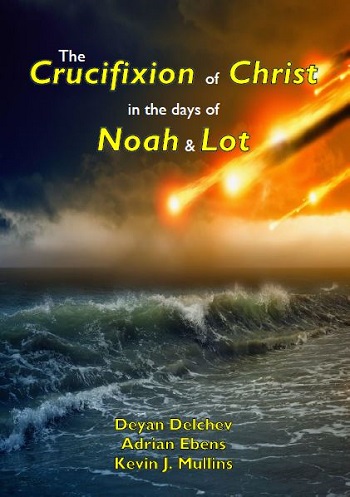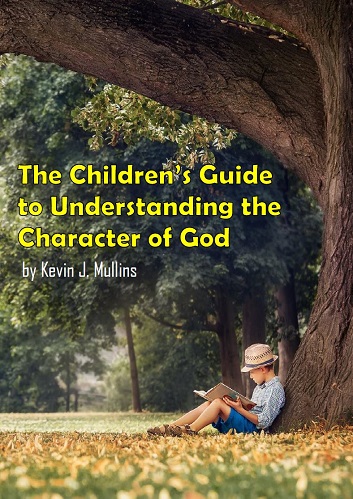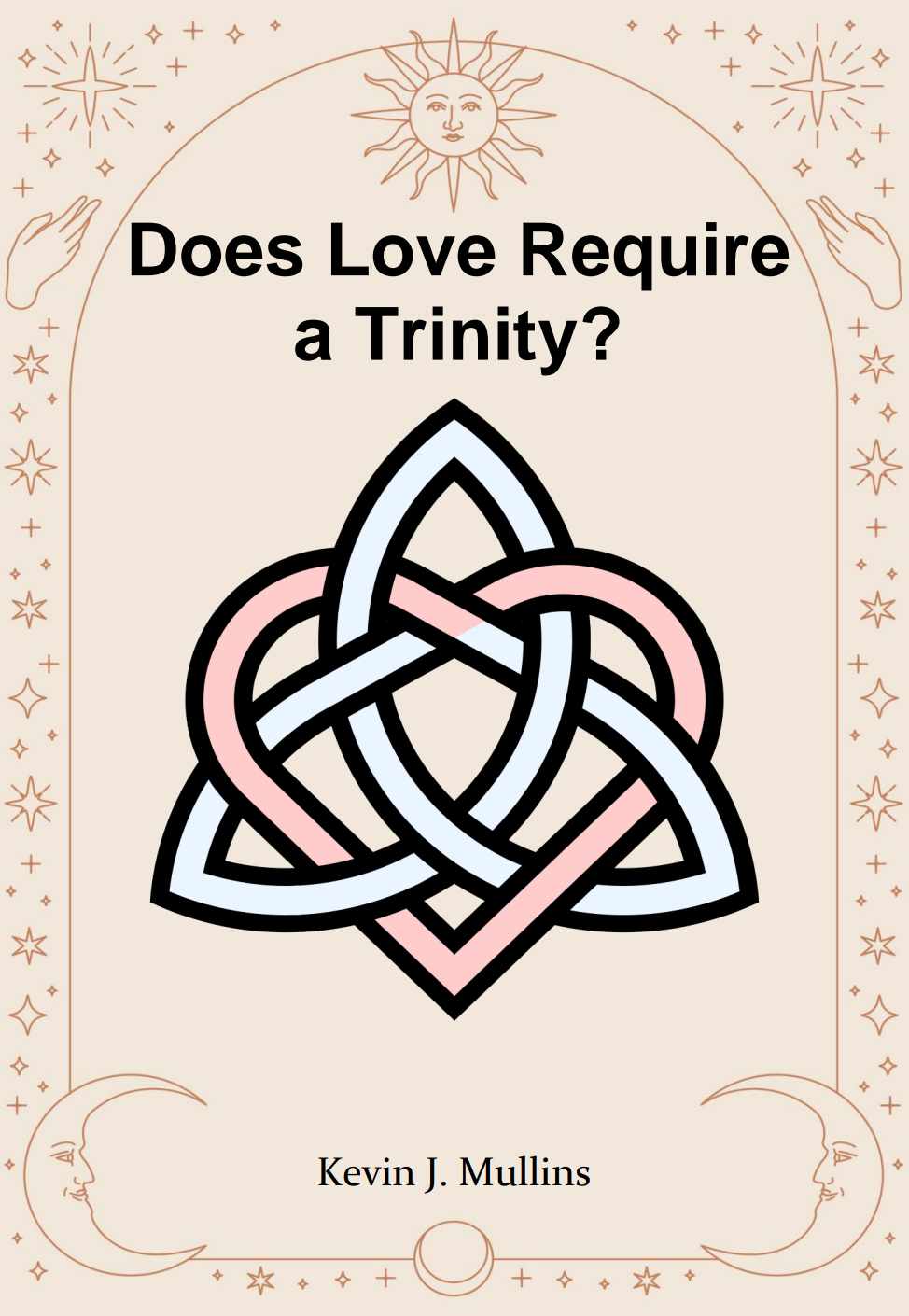(John 8:58) Didn’t Jesus Claim to Be the Most High God By Using the Term “I AM”?
“Jesus said unto them, Verily, verily, I say unto you, Before Abraham was, I am.” (John 8:58)
Many trinitarians use this as conclusive evidence that Christ is the Most High God because He used the term “I AM” in reference to Himself. Is this the case? The Bible says that Jesus is “the Son of the Highest” (Luke 1:32). The devils are even aware of this fact. One day a possessed man came up to Jesus and said, “Jesus, thou Son of the most high God?” (Mark 5:7). Jesus is the Son of the Most High God, not the Most High God Himself.
Let’s look at Exodus, the only place that the term “I AM” is used in the Old Testament. Moses saw a strange phenomenon as he beheld a bush burning but not being consumed. The Bible says:
“And the angel of the Lord appeared unto him [Moses] in a flame of fire out of the midst of a bush: and he looked, and, behold, the bush burned with fire, and the bush was not consumed” (Exodus 3:2)
Who appeared to Moses? “The angel of the Lord.” Who is that? As Moses drew near to the bush the angel of the Lord said, “Draw not nigh hither: put off thy shoes from off thy feet, for the place whereon thou standest is holy ground” (Exodus 3:5). We read of a similar occurrence with Joshua when he was about to surround Jericho.
“And it came to pass, when Joshua was by Jericho, that he lifted up his eyes and looked, and, behold, there stood a man over against him with his sword drawn in his hand: and Joshua went unto him, and said unto him, Art thou for us, or for our adversaries? And he said, Nay; but as captain of the host of the Lord am I now come. And Joshua fell on his face to the earth, and did worship, and said unto him, What saith my lord unto his servant? And the captain of the Lord’s host said unto Joshua, Loose thy shoe from off thy foot; for the place whereon thou standest is holy. And Joshua did so.” (Joshua 5:13-15)
Here the Captain of the Lord’s host appeared to Joshua and told him to loosen the shoes from off his feet, because the ground where he was standing was holy. We know this was not an angel, because an angel would not accept worship. John began to worship an angel and the angel said, “See thou do it not: I am thy fellowservant, and of thy brethren that have the testimony of Jesus: worship God: for the testimony of Jesus is the spirit of prophecy” (Revelation 19:10). We know that the Captain of the Lord’s host who appeared to Joshua was not God, the Father, for “No man hath seen God at any time; the only begotten Son, which is in the bosom of the Father, he hath declared him” (John 1:18). Another reason this could not be the Father is that this person identified Himself as the “captain of the host of the Lord” rather than “the Lord” Himself. The only One left who this could possibly be is Jesus Christ.
Christ appeared to Joshua and told him to take the shoes off of his feet, for the ground whereon he stood was holy. Christ is often referred to as “the angel of the Lord.” The word “angel” means messenger, and does not always refer to the class of beings known as angels. Jesus is not a literal angel, but He is the foremost messenger for God. God told Moses;
“Behold, I send an Angel before thee, to keep thee in the way, and to bring thee into the place which I have prepared. Beware of Him, and obey His voice, provoke Him not; for He will not pardon your transgressions: for my name is in Him” (Exodus 23:20, 21)
We also read, “And the angel of God, which went before the camp of Israel, removed and went behind them; and the pillar of the cloud went from before their face, and stood behind them” (Exodus 14:19). Christ was the One who went before the children of Israel. Paul wrote about Israel that they “did all drink the same spiritual drink: for they drank of that spiritual Rock that followed them: and that Rock was Christ” (1 Corinthians 10:4).
So we see that the only time the term “I AM” is used in the Old Testament as a name, it refers to Christ. How then can one say that because He used the same term in the New Testament that He was claiming to be the Most High God?
Some have argued that the term “I AM” means “eternal existence” or “without beginning.” But this is not the proper definition of the term. The Hebrew word is אהיה - hayah in the imperfect tense, which, according to the Brown-Driver-Brigg’s Hebrew Lexicon, means:
1) to be, become, come to pass, exist, happen, fall out
1a) (Qal)
1a1a) to happen, fall out, occur, take place, come about, come to pass
1a1b) to come about, come to pass
1a2) to come into being, become
1a2a) to arise, appear, come
1a2b) to become
1a2b1) to become
1a2b2) to become like
1a2b3) to be instituted, be established
1a3) to be
1a3a) to exist, be in existence
1a3b) to abide, remain, continue (with word of place or time)
1a3c) to stand, lie, be in, be at, be situated (with word of locality)
1a3d) to accompany, be with
1b) (Niphal)
1b1) to occur, come to pass, be done, be brought about
1b2) to be done, be finished, be gone
The word hayah has several meanings, one of which is “to come into being.” The word itself does not require an eternal existence in the past without beginning. However, it is used in the imperfect tense here, which can apply to past, present and future. Some have concluded from this that “I AM” means “without beginning.” But, let us see how this word is used in the exact same tense elsewhere in the Bible.
The first time this word is used is Genesis 1:2, which says, “And the earth was [hayah in the perfect tense] without form, and void;…” Here hayah is used in the perfect tense referring to a completed action in the past. The earth was without form, but it no longer is without form. That condition is past. The next verse says, “And God said, Let there be [hayah in the imperfect tense] light: and there was light” (Genesis 1:3). Here hayah is used in the imprefect tense (just as in Exodus 3:14) to express a condition that is ongoing. The light began on day one, but it continues to this day. Here we find that hayah in the imperfect form does not indicate “without beginning.” In fact, to the contrary; in this case it indicates a beginning.
Hayah in the imperfect tense is used of humans as well. God said, “And I will walk among you, and will be your God, and ye shall be [hayah in the imperfect form] my people.” (Leviticus 26:12; See also Genesis 9:26; 41:40; Judges 11:9; Ruth 2:13; 2 Samuel 15:34.)
Jesus is the I AM of Exodus 3:14 and John 8:58, but that does not mean He did not receive life from His Father, as He himself testified, “For as the Father hath life in himself; so hath he given to the Son to have life in himself” (John 5:26). Nor does His use of the term indicate that He is the Most High God. The Scriptures refer to Jesus as the “Son of the Most High God,” “the Son of the Highest” (Mark 5:7; Luke 1:32). The Father is the only being who is called “the most High,” “the Highest,” “above all,” etc.
Please do not let man-made theories keep you from acknowledging God, the Father, as the only most high God and Jesus Christ as His beloved Son.
The Miracles of Jesus
When Jesus was here He raised the dead, healed the sick, controlled the weather, etc. Jesus pointed to these miracles as evidence that He was sent by God. When John the Baptist sent messengers to Jesus to find out if He was the Messiah, “Jesus answered and said unto them, Go and shew John again those things which ye do hear and see: The blind receive their sight, and the lame walk, the lepers are cleansed, and the deaf hear, the dead are raised up, and the poor have the gospel preached to them” (Matthew 11:4, 5).
Some have concluded, since Jesus was able to perform miracles, that He possessed almighty power when He was on earth as a human. There is no doubt that Jesus possesses all power now, for He said after His resurrection, “All power is given unto me in heaven and in earth” (Matthew 28:18). But the time-period in question is during Christ’s life on earth as a human. If He had almighty power as a human, the reality of His suffering in the Garden of Gethsemane and on the cross would be in question.
Does the ability to work miracles prove that a person possesses almighty power? Peter said, “God anointed Jesus of Nazareth with the Holy Ghost and with power: who went about doing good, and healing all that were oppressed of the devil; for God was with him” (Acts 10:38). Here Peter said that the working of miracles proved that God was with Him rather than proving that He had almighty power. Jesus verified this when He said, “…the Father that dwelleth in me, he doeth the works” (John 14:10).
If the ability to perform miracles proves that a person is almighty, we would have to conclude that many people in the Bible were almighty. God healed lepars through Jesus. He did the same through Elisha (2 Kings 5:9-14). God raised the dead through Jesus. He did the same through Elisha (2 Kings 4:32). God opened the eyes of the blind through Jesus. God closed and opened the eyes of a whole army through Elisha (2 Kings 6:18-20). God controlled the weather through Jesus. God stopped it from raining for 3 ½ years, and then started the rain through Elijah (James 5:17, 18). These are just a few examples of God working miracles through others. Jesus said, “He that believeth on me, the works that I do shall he do also; and greater works than these shall he do; because I go unto my Father” (John 14:12). Jesus was not promising to convey almighty power on His disciples, but rather to work miracles through them.
The working of miracles does not prove that the one who physically spoke or performed the miracle is almighty. It is certainly true that Jesus had more authority than any human while He was here. The Father had commanded the angels to worship Him while He was on this earth (Hebrews 1:6). He could command that something be done, and they would obey His command (Matthew 8:5-10; 4:3). Yet, Jesus acknowledged that this authority was contingent upon His Father’s approval. When Peter began to fight for Him, Jesus said, “Thinkest thou that I cannot now pray to my Father, and he shall presently give me more than twelve legions of angels?” (Matthew 26:53).
All the miracles Jesus performed while He was on earth were performed by the power of God through His angels.






